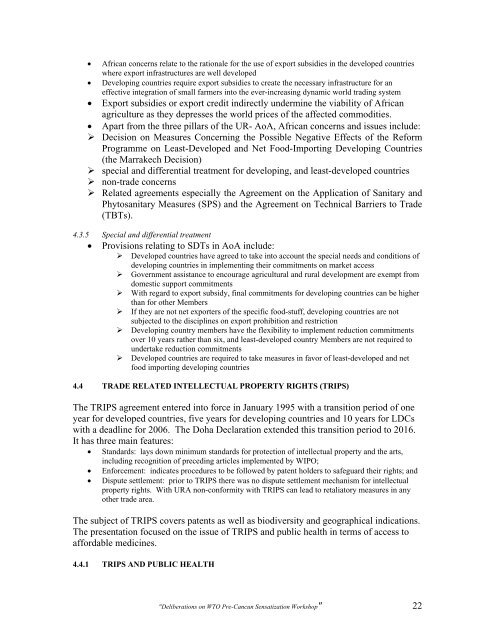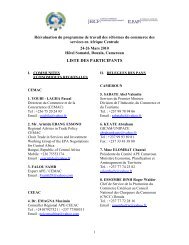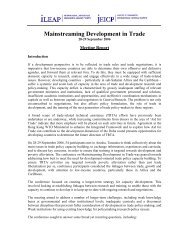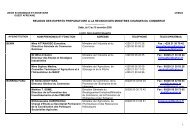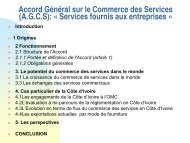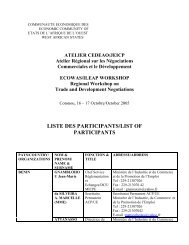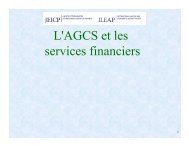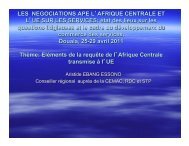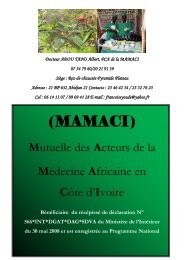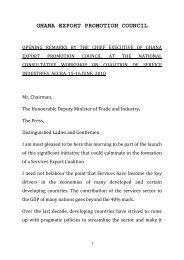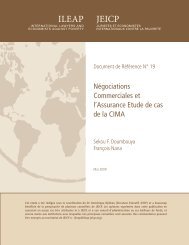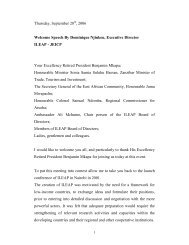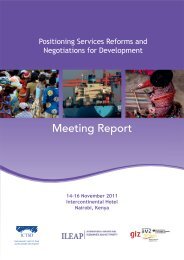Tanzania Report, Dar-Es-Salaam, Tanzania - ILEAP
Tanzania Report, Dar-Es-Salaam, Tanzania - ILEAP
Tanzania Report, Dar-Es-Salaam, Tanzania - ILEAP
Create successful ePaper yourself
Turn your PDF publications into a flip-book with our unique Google optimized e-Paper software.
• African concerns relate to the rationale for the use of export subsidies in the developed countrieswhere export infrastructures are well developed• Developing countries require export subsidies to create the necessary infrastructure for aneffective integration of small farmers into the ever-increasing dynamic world trading system• Export subsidies or export credit indirectly undermine the viability of Africanagriculture as they depresses the world prices of the affected commodities.• Apart from the three pillars of the UR- AoA, African concerns and issues include:‣ Decision on Measures Concerning the Possible Negative Effects of the ReformProgramme on Least-Developed and Net Food-Importing Developing Countries(the Marrakech Decision)‣ special and differential treatment for developing, and least-developed countries‣ non-trade concerns‣ Related agreements especially the Agreement on the Application of Sanitary andPhytosanitary Measures (SPS) and the Agreement on Technical Barriers to Trade(TBTs).4.3.5 Special and differential treatment• Provisions relating to SDTs in AoA include:‣ Developed countries have agreed to take into account the special needs and conditions ofdeveloping countries in implementing their commitments on market access‣ Government assistance to encourage agricultural and rural development are exempt fromdomestic support commitments‣ With regard to export subsidy, final commitments for developing countries can be higherthan for other Members‣ If they are not net exporters of the specific food-stuff, developing countries are notsubjected to the disciplines on export prohibition and restriction‣ Developing country members have the flexibility to implement reduction commitmentsover 10 years rather than six, and least-developed country Members are not required toundertake reduction commitments‣ Developed countries are required to take measures in favor of least-developed and netfood importing developing countries4.4 TRADE RELATED INTELLECTUAL PROPERTY RIGHTS (TRIPS)The TRIPS agreement entered into force in January 1995 with a transition period of oneyear for developed countries, five years for developing countries and 10 years for LDCswith a deadline for 2006. The Doha Declaration extended this transition period to 2016.It has three main features:• Standards: lays down minimum standards for protection of intellectual property and the arts,including recognition of preceding articles implemented by WIPO;• Enforcement: indicates procedures to be followed by patent holders to safeguard their rights; and• Dispute settlement: prior to TRIPS there was no dispute settlement mechanism for intellectualproperty rights. With URA non-conformity with TRIPS can lead to retaliatory measures in anyother trade area.The subject of TRIPS covers patents as well as biodiversity and geographical indications.The presentation focused on the issue of TRIPS and public health in terms of access toaffordable medicines.4.4.1 TRIPS AND PUBLIC HEALTH"Deliberations on WTO Pre-Cancun Sensatization Workshop" 22


